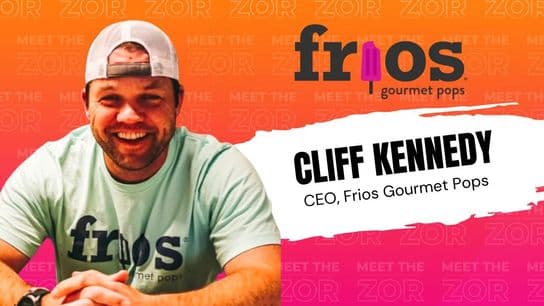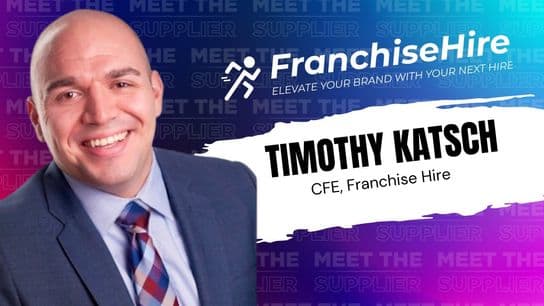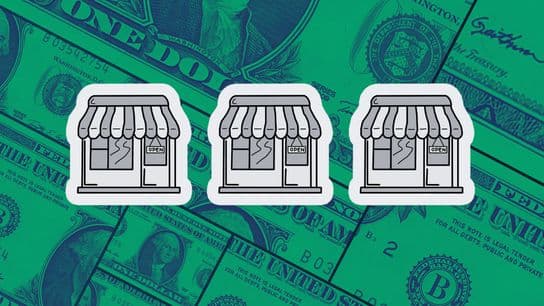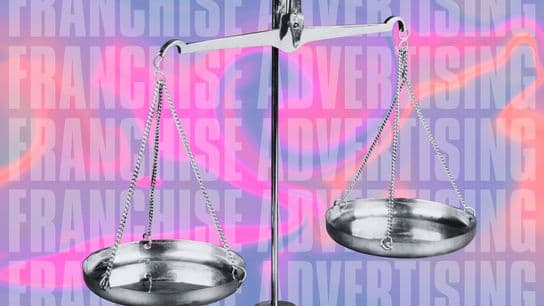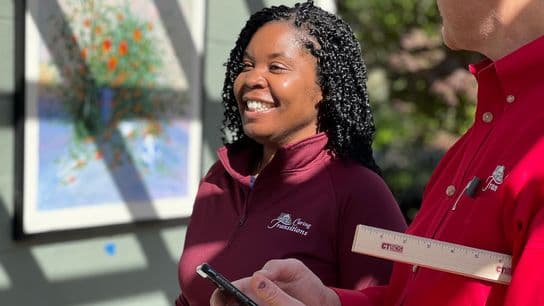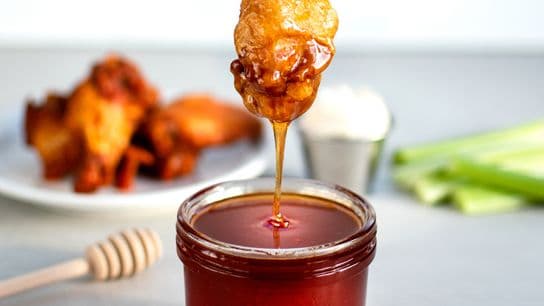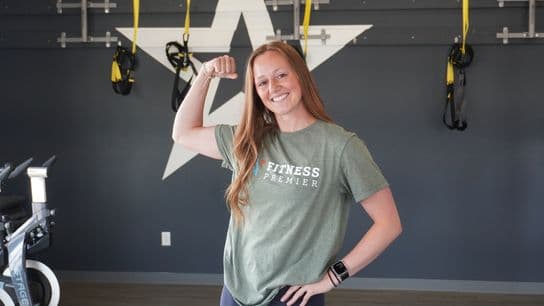10 Turnaround Brands
Like any relationship, a franchise needs to be nurtured, tended to and constantly assessed for ways to improve. In some cases, the effort might not be there on behalf of the franchisor or the franchisee and the brand struggles. Whether it’s from training, partnering with the wrong franchisees, misguided leadership or a combination, the franchise brands below have experienced downturn and have come back stronger than before.
1. Beef ‘O’ Brady’s
Beef ‘O’Brady’s is a Tampa-based family sports pub franchise under the FSC Franchising Co. umbrella alongside craft beer franchise The Brass Tap*. Chris Elliott was brought on in 2010 as a consultant to jumpstart sales after four years of declining sales and more than 100 stores closing across the system. He quickly took over as CEO and jumped right in, implementing upgrades on the menu, a refocused marketing plan and commitment to open company stores, resulting in renewed interest in the brand from consumers and franchisees.
Further showing Elliott’s commitment to the brand, he and the senior leadership team increased their equity, and turned over the majority stake of the company to CapitalSpring Partners in 2017. As part of the deal, the company aims to take underperforming franchised locations under corporate ownership, develop new store branding in an effort to shed some of its Irish image and upgrade kitchens to be more efficient with service and innovative with menu items.
2. Bennigan’s
For more than 30 years, Bennigan’s was a casual dining mainstay, offering Turkey O’Toole’s, Monte Cristos and County Cork Clubs and the like to families across the United States. As more players entered the segment, the brand got overlooked by customers was sold twice to private equity. The brand filed for bankruptcy in 2008, closing 150 corporate stores with many franchised locations closing shortly thereafter.
In 2011, CEO Paul Mangiamele came on board and implemented some key strategies to bringing Bennigan’s back to its pre-bankruptcy roots. He did an in-depth operations analysis to uncover every potential area for improvement; created a marketing program to leverage St. Patrick’s Day for a year-long celebration and developed a catering program for additional revenue streams. In 2015, he and wife Gwen purchased the chain and renamed it Legendary Restaurant Brands. Now, the brand is selling Bennigan’s, casual dining brand Bennigan’s on the Fly and formerly defunct Steak and Ale. Under this renewed focus, the brand is expanding both globally and internationally.
3. BoConcept*:
Founded in Denmark, BoConcept is a global powerhouse with nearly 300 units in 60 countries. Expansion efforts led the brand to the United States in 2002, and when the recession hit in 2008, BoConcept, like many other brands, weathered the storm and developed a new strategy for growth. By streamlining its system to better serve its current franchise owners and to better attract the right type of entrepreneur to become the brand’s next multi-unit franchisees, BoConcept was back on track to achieve similar growth stateside as the brand had enjoyed internationally.
In 2017, the brand launched a pop-up shop in SoHo and partnered with New York Fashion Week on a furniture installation for the VIP lounge to build buzz around its flagship store opening on Madison Avenue in New York City. With a store set to open in Atlanta this fall, and locations already open in Boston, Los Angeles, Miami, Seattle and San Francisco, BoConcept is a brand to watch.
4. Captain D’s
In 2014, Captain D’s was named the “Turnaround of the Year” by Buyouts magazine (published by Reuters) and since then, the brand has taken steps to continue that momentum.
Established in 1969, Captain D’s grew to more than 500 locations, and, despite solid market positioning, began struggling in the early 2000s. Captain D’s leadership set out to rebrand, with upgrades to food quality and menu diversity, as well as a new store design that mimicked a seaside restaurant, with less focus on a nautical theme and more on an open air, beachy atmosphere. As of summer 2017, 70 percent of restaurants have been brought up to the new design, with another 50 to be completed by the end of the year.
As a result of these brand cohesion and growth efforts, Captain D’s reported its sixth consecutive year of same store sales increases and fourth year of record high system-wide AUV in 2016, and plans to open 25 new restaurants in 2017.
5. Checkers* & Rally’s
In the mid-2000s, Tampa-based Checkers & Rally’s was in a slump. Sales were on a decline, stores were closing and franchisees were unhappy. In 2006, Wellspring Capital purchased the brand and brought in CEO Rick Silva to kickstart sales -- and that, he did. Under his direction, the brand implemented a strategic plan to jumpstart growth and unit-level profitability and continue opening corporate stores alongside its franchisees. In 2014, Sentinel Capital Partners purchased the brand and after growing to more than 840 units, it was purchased again in 2017 by Oak Hill Partners for $525 million. Checkers & Rally’s has enjoyed six consecutive years of system-wide same-store sales growth, improved profitability of 20 percent per year for the past seven years and an average unit volume of more than $1 million and growing.
In 2017, Checkers & Rally’s introduced the launch of Model 4.0, which gives franchisees the choice of three buildout plans: traditional; modular and shipping container. The modular option is built off-site, is not subject to weather or other forces that may delay construction, is affordable and fully mobile. Checkers & Rally’s execs anticipate that the modular buildout will play a key role in achieving its goal of 1,200 locations by 2020.
6. Fazoli’s
An early leader in the fast casual segment, Fazoli’s quickly grew to more than 400 stores, but by 2004, the brand had closed half its locations in the six years that followed. The cause? Aggressive cost-cutting measures that were short-sighted in their execution. Carl Howard took the reins in 2008 as president and CEO, and did an in-depth study of the brand to determine its pain points, ultimately deciding to focus on service and food quality to get the brand back on track.
Fazoli’s has since implemented a menu refresh, with a focus on completely clean, premium ingredients, secured new ownership and climbed back to 220 restaurants in 26 states. In June 2017, the brand announced 17 quarters of same-store sales increases and plans to do a store remodel.
7. Mrs. Winner’s Chicken & Biscuits
The rise and fall and rise again of Mrs. Winner’s Chicken & Biscuits is a perfect example of a turnaround brand. After winning over fans in the South with its irresistible chicken for 30 years, the brand filed for bankruptcy in 2009 and abruptly closed the doors to the majority of its locations. But one of those fans, John Buttolph, who was involved in the Chapter 11 filing, knew this wasn’t the end for Mrs. Winners Chicken & Biscuits. To get paid for his work during the Chapter 11 filing, Buttolph took the trademarks and the reins of the brand in 2012, and worked tirelessly for two years to re-energize the brand. In 2016, the brand reported system wide revenues of $12 million across its 13 locations nationwide, with plans to add 10 franchised stores and one company-owned store per year.
8. Saladworks
The first and largest fresh-tossed salad franchise, Philadelphia-based Saladworks proves that filing for bankruptcy doesn’t always signify death. Founded in 1986, Saladworks was embraced by consumers and entrepreneurs alike for its commitment to serving healthy food fast. After growing to more than 100 locations, the brand filed for bankruptcy in 2015 due to a dispute within the ownership, and brought on Centre Lane Partners as an investor.
Saladworks has since taken a proactive approach to reinvigorating the 30-year old brand, developing a new store design, innovating within its menu, upgrading its in-store technology and loyalty program and bringing on CEO Patrick Sugrue to build a team to focus on growth. In 2017, the brand laid out a corporate and franchisee growth plan and is enjoying a 4.25 percent uptick in comp sales.
9. Salsarita’s
After serving as chairman and CEO of McAlister’s Deli, Phil Friedman was looking for a brand to take on as his next project. He came across Salsarita’s, a fast-casual Mexican franchise that had closed nearly half of its 140 locations. Excited by the growth in the fast-casual segment, and the strong bones of the company, Friedman and a group of investors took the brand on in 2011.
Since then, the brand has made investments to upgrade the current menu and develop out-of-the-box menu additions like Tortilla Pizza, has streamlined operations and training, launched the first drive-thru location in 2017, and hired a new president and COO to further improve growth. Now, the brand has 80 locations, 12 of which are company-owned.
10. Smoothie King
In 2012, Smoothie King franchisee Wan Kim had the opportunity of a lifetime. The owner of 100 locations in South Korea, Kim purchased the then-700 unit brand and moved his family to New Orleans. The originator of the smoothie and juice category, Smoothie King was in need of a brand refresh and a push to grow in the United States.
Since his purchase, Kim has grown the brand to 900 units, given the brand’s marketing a facelift and, in the fall of 2017, introduced the Cleaner Blending initiative to remove sugar from more than 50 smoothies on the menu. In 2017, Kim and his team plan to bring the global store count to 950 by partnering with like-minded franchisees that are committed to living a healthy and active lifestyle.
*This brand is a paid partner of 1851 Franchise. For more information on paid partnerships please click here.
MORE STORIES LIKE THIS
Ideal Siding Founder and CEO Shares His Journey into Franchising
Franchise Deep Dive: QC Kinetix Franchise Costs, Fees, Profit and Data
From Traffic Jam Commuter to Franchisee to Franchisor: The Unconventional Journey of Frios Gourmet Pops’ CEO
Franchise Deep Dive: Renovation Sells Franchise Cost, Fees, Profit and Data




